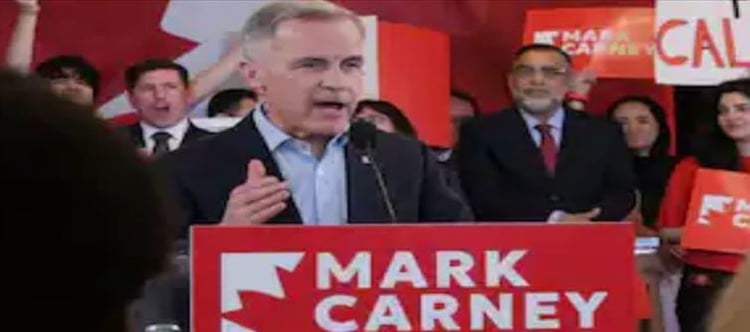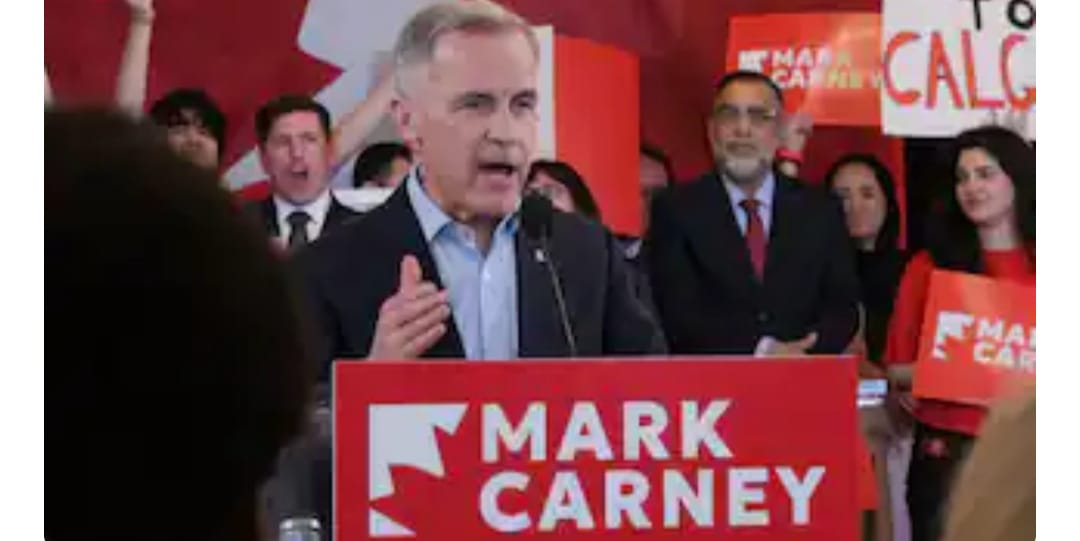
Canadian PM Mark Carney Calls Snap election For April 28, Seeks Strong Mandate To Counter Trump’s Trade War
Canadian prime minister Mark Carney called for an election on April 28th due to economic tensions with the US and President Trump's tariffs, seeking a fresh mandate to counter them.

Canadian prime minister Mark Carney has called for a federal election on 28 April, seeking a fresh mandate amid growing economic tensions with the united states under President Donald Trump. Carney, who assumed office just over a week ago following Justin Trudeau’s resignation, said he wanted to take decisive action to counter Trump’s tariffs, bolster Canada’s economy, and strengthen international partnerships.
“I knew our country needed to take action,” Carney said, as quoted by BBC, highlighting his government’s initial steps since taking office. He pointed to a new national defense agreement with Australia, stronger diplomatic ties with france and the UK, and early discussions on a trade deal with the EU.
One of Carney’s key moves has been scrapping the carbon tax, a policy he said had caused division. He emphasized the need for a “strong, positive mandate” from Canadians, stating, “There is so much more to do to secure Canada.”
The trade war with the US, exacerbated by Trump’s tariffs, has emerged as a central issue in the upcoming election. Carney called it one of the “most significant threats of our lifetimes,” vowing to support farmers and businesses impacted by the economic standoff.
“President trump claims that Canada isn’t a real country. He wants to break us so America can own us,” Carney remarked outside Rideau Hall after dissolving Parliament, as quoted by CBC.
The election campaign—set to last 36 days, the shortest period allowed under law—is shaping up to be a closely contested battle between Carney’s Liberals and opposition leader Pierre Poilievre’s Conservatives.
Polling data from CBC’s Poll Tracker suggests the Liberals have gained momentum, leading in Atlantic canada, Quebec, and Ontario, while the Conservatives maintain a stronghold in Alberta, the Prairies, and british Columbia. The NDP, led by Jagmeet Singh, is facing its lowest popularity levels in decades and risks losing party status.
Trump’s Tariffs Loom Over canada election Campaign
The campaign focus has shifted significantly since Trump’s re-election, with his government imposing 25 percent tariffs on steel and aluminum imports. canada has doubled retaliatory tariffs on US goods, and further escalation is expected on 2 April, when the White House is set to introduce another round of tariffs.
At his campaign launch in Gatineau, Quebec, Poilievre also took a firm stance on Trump’s economic aggression, declaring that he would never allow canada to become “the 51st state.”
“You can be respectful and firm, and I believe we have to be both,” he said, as per CBC. “I will insist the president recognize the independence and sovereignty of Canada. I will insist he stop tariffing our nation.”
While Carney’s Liberals are positioning Poilievre as “Trump-lite,” the Conservative leader has sought to distance himself from the US President. In response to Trump’s recent jibe, calling him “stupidly, no friend of mine,” Poilievre hit back, stating, “I’m a tough guy to deal with.”
The Liberals’ surge in polling follows Carney’s move to scrap the carbon tax, effectively removing a key attack point for Poilievre, who had promised to repeal it. However, Poilievre has alleged that Carney would reinstate the tax if re-elected, despite the prime ministerial directive to eliminate the charge from 1 April.
Meanwhile, NDP leader Jagmeet Singh, facing an uphill battle, has insisted his party remains a vital force.
“This is a very important election, and I know that Mark Carney and Pierre Poilievre would want nothing better than for the NDP to disappear,” he told supporters, as reported by CBC. “We’re not going anywhere.”
The Greens, polling at 3.6 percent, have announced that co-leader Jonathan Pedneault will be the party’s main public face during the campaign.
As the election battle intensifies, Carney, a former bank of canada and bank of england governor is expected to campaign on his economic expertise, while Poilievre positions himself as the leader who will “fix a broken Canada.”
With just over a month until Canadians head to the polls, both leaders are gearing up for a fiercely contested race over trade, the economy, and Canada’s sovereignty in the face of mounting pressure from Trump’s White House.




 click and follow Indiaherald WhatsApp channel
click and follow Indiaherald WhatsApp channel